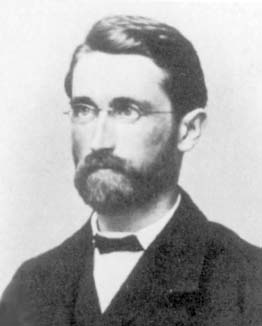Richard Dedekind
Julius Wilhelm Richard Dedekind (* 6 de octobre 1831 in Braunschweig; † 12 de februario 1916 mesme citate) esteva un mathematico german. Su nomine porta le anellos de Dedekind, le function η de Dedekind, le function ζ de Dedekind, multe altere notiones e diverse theoremas.
| Richard Dedekind | |
|---|---|
  | |
| Sexo | mascule |
| Nascentia | 1831-10-06 (Braunschweig) |
| Decesso | 1916-02-12 (Braunschweig) |
| Loco de reposo | Braunschweig Main Cemetery[*] |
| Citatania | Duchy of Brunswick[*] |
| Educate in | University of Göttingen[*], Humboldt University of Berlin[*], Technical University of Braunschweig[*] |
| Occupation | mathematico, philosopho[*], professor universitari[*] |
| Obras notabile | Vorlesungen über Zahlentheorie[*] |
| Conjuge | sin valor |
| Parentes | matre Caroline Marie Henriette Emperius[*] patre Julius Dedekind[*] |
| Fratres/sorores | Julie Dedekind[*], Adolf Dedekind[*] |
| Lingua | germano |
| Identificatores | |
| ISNI | 0000000121373648 |
| VIAF | 66545704 |
| Commons | Richard Dedekind |

Obra
modificarDedekind recercava in le theoria del ideales, le theoria de numeros, le analysis e altere campos. In 1872, in su scripto Stetigkeit und Irrationalzahlen (= Continuitate e numeros rational) illo como le prime definiva le numeros real con adjuta del sectiones de Dedekind. In 1888, Dedekind dava le prime introduction exacte per axiomas in le numeros natural per su scripto Was sind und was sollen die Zahlen? (= Que es e que significa le numeros?).[1]
Referentias
modificar- ↑ Hubert Kennedy: The origins of modern Axiomatics, in: American Mathematical monthly, 79 (1972), 133–136.